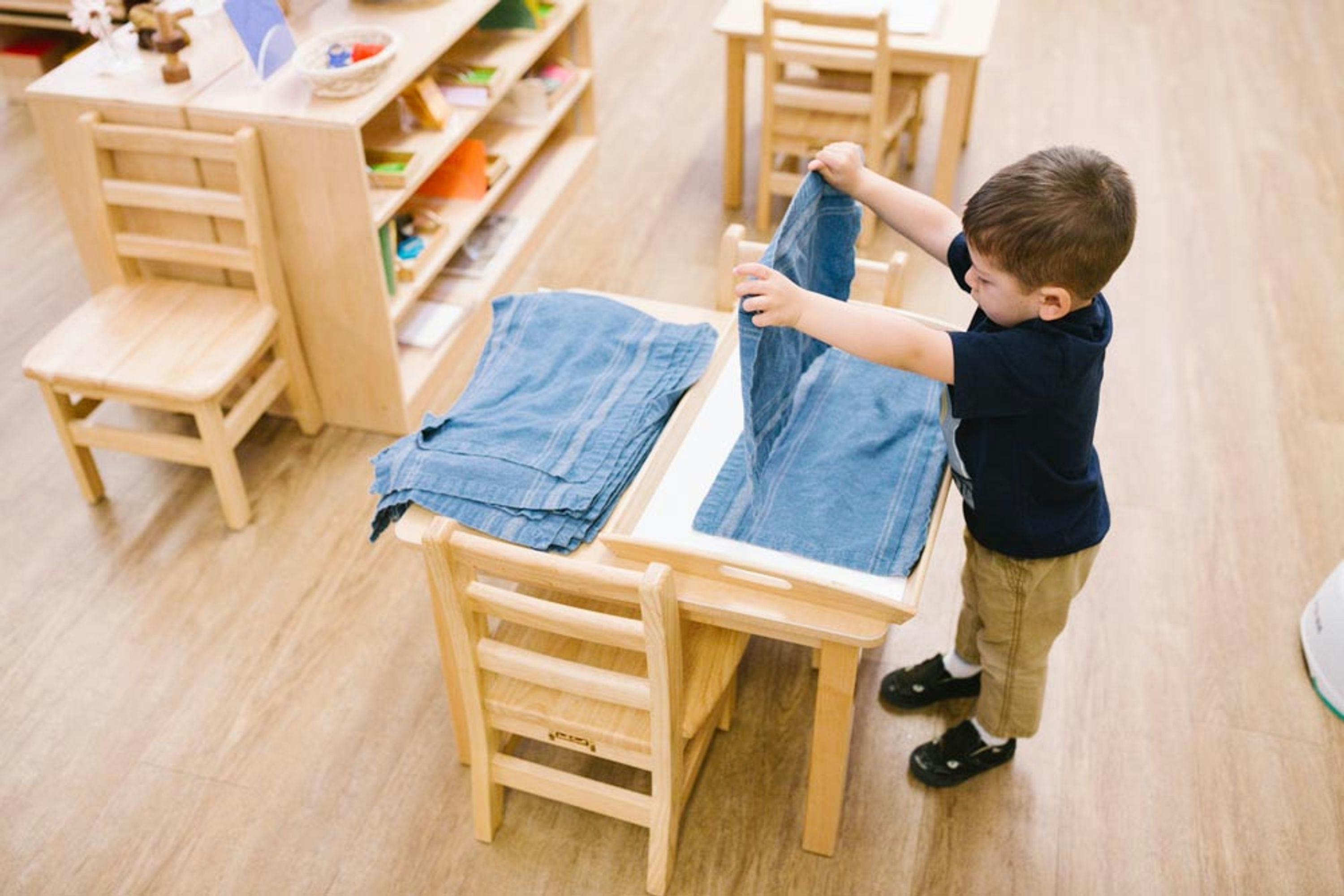The End Goal of Raising Resilient, Independent Children
A parent perspective on the role that meaningful connection has in fostering independence
Jenna Wawrzyniec
Content Specialist
I’m not sure that there is anything I don’t like about the Montessori influence on parenting. It is a path that has wholly transformed and enriched our family’s journey, but if there is one focus of Montessori that I have to keep re-learning, it’s the pillar on independence.
““Never help a child with a task at which he feels he can succeed.””
It’s embedded in my brain, and it’s mostly a beautiful thing, but it's also easy for me to overemphasize this.
What happens when I overemphasize independence? Could that even be a bad thing? Yes, because often my children’s asks for help are rooted in a need for connection, collaboration and just plain humanity in not always feeling like doing everything on their own. These are all valid needs: To feel successful and capable; to feel connected to others; to feel supported by others; and to feel that it’s okay if we’re not always “on.”
Independence is rightfully emphasized in Montessori, though, because we live in a culture where children are significantly and systemically under-estimated. This stunts opportunities for our children to reach their true potential.
But here’s what I’ve realized. Independence is not just threatened by a culture of overlooking children as inferior; it’s also threatened by too fast an adult pace that disconnects with children under the guise of independence. Yet, true independence is born from meaningful connection – connection with the world around us and connection with one another.
The goal of independence in Montessori, therefore, is not to get our children to do things in isolation. It is to help them better connect – first to their world and sense of self, then to their social circles and communities – and eventually to their greater calling in society as adults. Independence is not a selfish trait. It’s a selfless one, and it unlocks the keys to our potential so that we may be stronger innovators, contributors, collaborators, leaders.
I needed a refresher on this end goal. I’m only at the beginning of this whole parenting thing, with two preschoolers and a newborn on the way. Independence around here is in the smallest moments that we often take for granted as adults; learning to dress for ourselves, brush our own teeth, retrieve our own snacks and water. There is still a lot that my children need from me, and a lot that I could always seem to use help with as a result. “You can do it yourself,” I catch myself saying more and more, especially these days with the added fatigue of the pandemic and pregnancy.
It hit me over dinner when I suddenly felt an irony in my own words. “Please. I need help. Everyone pick up your plates and bring them to the sink. We can all help clean-up after dinner!” To which my two preschoolers repeated back, “You can do it yourself, mom.”
That day, I was in such a rush to promote independence that I wasn’t modeling the equally important lesson of being a kind helper. That day, I said no to helping with shoes; No to helping with buttons on a shirt; No to pouring a glass of milk. Except it wasn’t kind or supportive of me to keep turning my shoulder. There’s a huge difference between “You can do it yourself” as encouragement when our children need guidance, vs. using that logic to disengage when our children are seeking connection.
Yes, we can do things by ourselves, but that’s not the end goal. As much as we should refrain from unnecessary interference in our children’s development, we should equally be emphasizing an enthusiasm and gentle hand towards lifting one another up.
At ages 4 and 2, sometimes lifting them up looks like slipping those shoes on once more, buttoning that shirt despite their capability to do so, or pouring that glass of milk that they asked for after a day of hard work.
““We shall walk together on this path of life, for all things are part of the universe and are connected with each other to form one whole universe.””
Jenna Wawrzyniec
Jenna is a trained journalist and writer whose parenting journey transformed after implementing Montessori at home with her three children. She is a passionate advocate for bridging Montessori to the mainstream as a means to build community, empower parent-child relationships, and honor learning as the lifelong journey that it is.
Sign up for our newsletter
Get started with our community today! Sign up for resources.
